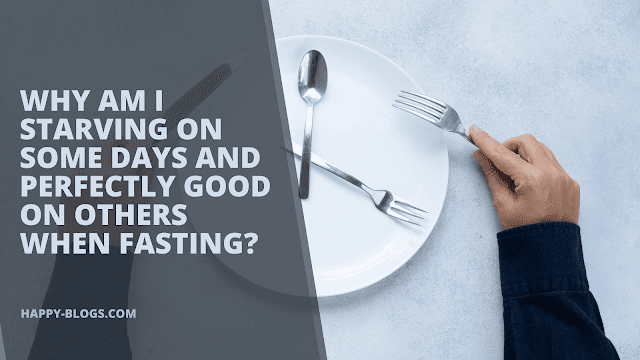Do you have doubts about your fasting schedule and wonder why some days are different than others?
Do you find yourself hungry on certain days but perfectly fine on others? Welcome to the group, then! Rest assured, this is a very normal quality that we must accept in order to remain balanced on our fasting journey. However, if you have a curious mind, you'll want to know what's going on inside, so let's dive in.
Our bodies are continually seeking to attain their own equilibrium (homeostasis) by maintaining or regulating internal factors such as our neurological system (the brain), endocrine controls (hormonal), and general behavior. If our internal temperature drops, we shudder to keep it stable. When we drink a glass of fruit juice, our glucose (sugar) levels rise, and our pancreas responds by creating insulin to assist in the utilization of glucose for energy.
In the world of hunger and satiety, hormones in our circulation communicate with our brain, telling it if we should eat more or if we're satisfied. The hypothalamus is the region of the brain that determines whether our body is rich in energy or poor in energy - whether or not we are hungry.
Our brains and guts are continually interacting. After we've eaten, our stomachs will be somewhat full. When we haven't eaten in a while, our stomachs become empty and begin to speak to us. It begins to make noises and even growls, or it feels as though it is burning. If you listen carefully, you may hear the stomach saying ghrelin... Ghrelin is the name of the hormone that is released into the bloodstream to alert the hypothalamus to our hunger and drive us to seek food. Isn't it lovely?
So let's get back to fasting. We all have a fasting muscle that needs to be stretched and relaxed depending on how we feel on any given day, at any given hour! There is no such thing as a one-size-fits-all solution since one size will never fit all. You have control over your fasting muscle, and it is up to you how you want to use it and what you want the consequence to be.
There is fear that by encouraging intermittent fasting, we may unintentionally encourage extreme behaviors like bingeing. Moderate fasters, on the other hand, take a more balanced approach: they eat most of the time sensibly to enhance biomarkers of disease, minimize oxidative stress, and preserve learning and memory performance.
Here are a few helpful hints to keep you out of the way of 'STARVING':
Consume complete, unprocessed foods:
Jason Fung claims in his book, The Complete Guide to Fasting, that our bodies have evolved to manage natural meals and that feeding it abnormal foods results in illness.
He goes on to suggest that foods should be identifiable in their natural state as being alive or having come from the ground. Cheerios boxes do not grow in the ground. Simply eating actual food is the true secret to good eating.
Alter the narrative:
Fasting differs from starving in one critical way: control. Starvation is the involuntary refusal to eat, and people have no idea when or where their next meal will arrive. Fasting, on the other hand, is the deliberate cessation of eating for health or other reasons. Food is readily available, but you refuse to consume it. It's the difference between jogging for fun and running because a lion is chasing you. When we modify our mental narrative, miraculous things begin to happen.
Bend over backward, including yoga:
Our brain and gut communicate via a complicated system that includes the vagus nerve. This magnificent nerve not only transmits messages but is also in charge of regulating internal organ processes such as digestion, heart rhythm, and breathing rate.
There is mounting evidence that food components such as probiotics, gluten, and medications such as antibiotics have a strong influence on the vagus nerve and that targeting it may result in a better improvement in emotional problems. Some yoga practices, in turn, can directly stimulate the vagus nerve. Sudarshan Kriya Yoga (SKY), a breathing-based meditative approach, thereby stimulates the nerve by altering heart rate, boosting cognition, and improving bowel function
As you become more in tune with your body and begin to provide it with what it truly requires, you will gradually begin to feel more full and be able to go longer between meals without feeling the overpowering urge to eat.

